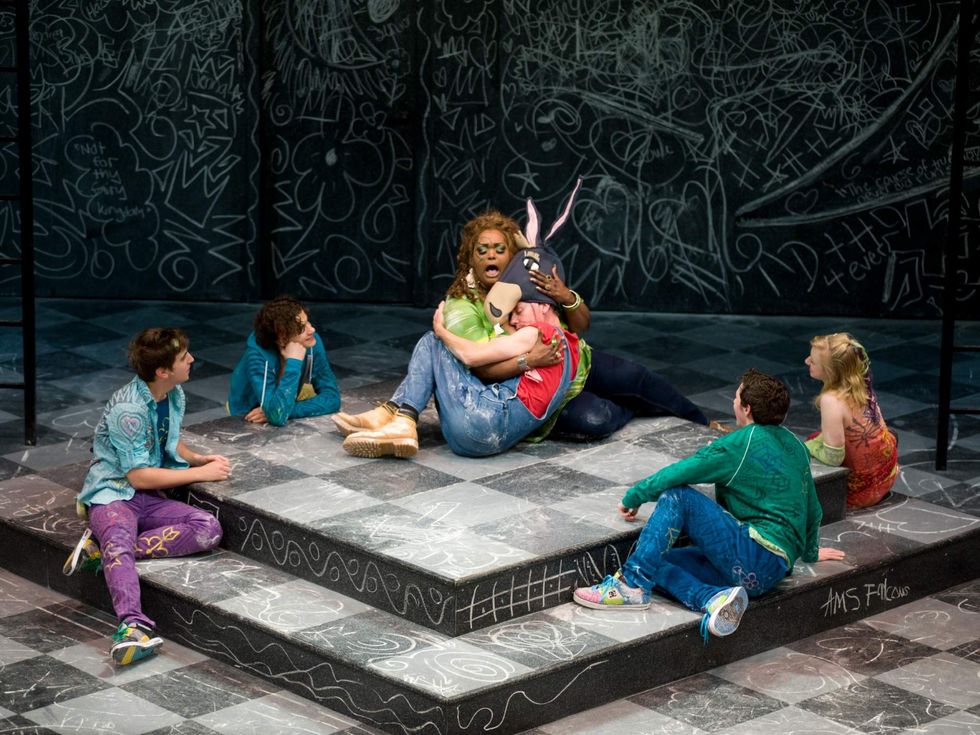Movie Review
Spanish film Parallel Mothers takes alternate path toward success
The 72-year-old Pedro Almodóvar has been a force in Spanish cinema for 40 years, inspiring filmmakers in Spain and around the world with his knack for telling stories full of color and complexity. The writer/director tends to work with many of the same actors, including internationally famous ones like Antonio Banderas and Penélope Cruz, the latter of which he has directed no fewer than seven times.
The filmmaker and actor have teamed up once again in Parallel Mothers. Cruz plays Janis, a photographer on the brink of 40 who gets pregnant unexpectedly. While in the hospital to give birth, she meets Ana (Milena Smit), whose pregnancy comes on the opposite side of age spectrum. The two bond quickly, promising to stay in touch to support each other as first-time mothers.
Both women have disassociated themselves from their babies' fathers, although Janis still maintains a friendly relationship with Arturo (Israel Elejalde), an archeologist who was helping her with a family project. Ana would like to lean on her mom, Teresa (Aitana Sánchez-Gijón), but Teresa has long held dreams of being an actor that she continues to pursue even after the baby is born.
For most of the film’s running time, the story is both relatively straightforward and oddly formulated. Janis and Ana’s friendship morphs and grows, but in ways that are often culturally specific to Spain. Almodóvar introduces some story twists with which American audiences are familiar, but he deals with them in a manner that is decidedly different for anyone who may be used to the rhythm of U.S. films.
As the film is called Parallel Mothers, one would think that it’s about the impact of motherhood on these two women. And while that is definitely the main focus of the film, it begins and ends with a seemingly-unrelated request Janis made to Arturo for help in excavating a mass grave to recover the remains of her great-grandfather. With allusions to the reign of former Spanish dictator Francisco Franco, the film seems to be commenting on something of which only Spanish citizens may have great knowledge.
As that shows, Almodóvar is unafraid to take narrative risks. He includes a few time jumps that aren’t too difficult to follow, but do take a few moments for the viewer to reorient his or her thinking. And, at least in the early going, the storytelling feels like a game of tag, going from one character to the next quickly and with little context. Where an American film might spell out things explicitly, this one keeps its emotions understated, never delving into histrionics.
Cruz, who just appeared in The 355, is obviously very much at home in an Almodóvar film. She exudes both vulnerability and strength, and the way she handles the story’s trickier moments is a testament to her Oscar-winning skills. Smit’s role requires a different approach, but she’s just as impressive. All of the supporting actors play a big part in making the film succeed, especially Sánchez-Gijón and Rossy de Palma.
Parallel Mothers is an engaging watch, with Almodóvar using his normal style to great effect and showcasing the actors highly effectively. Even if it doesn’t stick the landing, there’s more than enough on the screen to recommend.
---
Parallel Mothers is screening seven times at the Modern Art Museum of Fort Worth, January 28-30.






